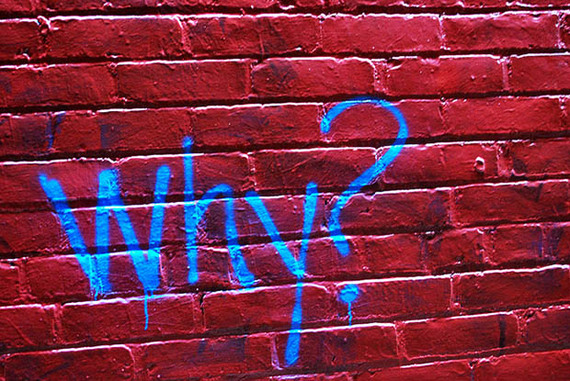The life of an optimist begins with the answer to a very common question: Why did this happen to me?
Sometimes the answer to that question is pretty simple and straightforward: "I lost my job because the company went out of business;" "I failed the test because I didn't prepare myself."
However there can also be ambiguity about the cause of an event--and in that ambiguity lies a critical root of optimism. Psychologists talk about the "explanatory style"--the way we explain whatever happens to us. Some people tend to say about their misfortunes, "It's me, it's going to last forever and it's going to undermine everything I do." That is the rationale of a pessimist. Optimists explain their misfortune differently: "It was just the circumstances. It was bad luck. It's going away quickly, and by the way, there's a lot going well in my life."
There's a beautiful story about Olympic swimmer Matt Biondi that illustrates the impact of his "explanatory style" on his success (you can read it here in my 7 Reasons to Be an Optimist).
The pessimist tends to look for an internal cause for misfortune. The optimist looks for an external cause. Moreover the pessimist sees something that will last a long time while the optimist sees something that will pass quickly. Finally, the pessimist sees something global in the event--whatever happened applies to everything, to her whole life--and the optimist sees something specific that is random and will pass.
Pessimists who blame themselves for bad events tend to feel powerless to change them. This leads to stress and stress weakens the immune system, which makes disease more likely. That's why pessimists are likely to be less healthy than optimists, who don't expose themselves to such a chain of stressful reasoning.
The way we explain our lives begins in early childhood. It is a habit of thought that we pick up from our parents based on how they explain our experiences to us. The good news is that psychologists have shown that you can learn to be an optimist. In his book Learned Optimism, Martin Seligman writes that he can turn someone who's had thirty years of practice thinking pessimistically into an optimist. His lesson plan is a combination of creative brainstorming techniques and exercises in assertiveness, relaxation and decision-making--all in the context of "learning to cope with life." That way, we begin explaining our bad experiences in a different way. The program has been taught for years to freshmen at the University of Pennsylvania and the results are clear: better health; fewer visits to the doctor; better grades; fewer suicides; better eating habits; more exercise; better self-care; and more.
Your optimism, your health and happiness, starts with a better answer to that Why did this happen to me question. When you change your answer to that question, you change your mind... and your life.

